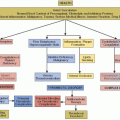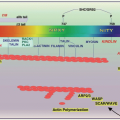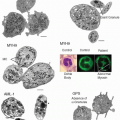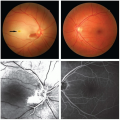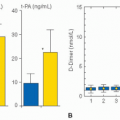Overview of Special Clinical Groups
Victor J. Marder
Joel S. Bennett
The majority of this textbook is devoted to basic aspects of hemostasis and thrombosis and specific hemostatic and thrombotic diseases. But more common in clinical practice are disorders in which hemostasis and thrombosis are complicating features of another pathologic process. In latter disorders, the homeostatic balance that maintains the fluidity of the blood, while at the same time leaving it poised to prevent hemorrhage after trauma, is perturbed by systemic processes to cause bleeding, thrombosis, or both. This section of the textbook considers the potential for hemorrhagic or thrombotic manifestations in select patient groups, from conception to old age. The goal of these chapters is to provide a conceptual framework for understanding pathogenesis. Details of treatment are provided in chapters devoted to individual therapeutic agents or to specific thrombotic and hemorrhagic events.
PREGNANCY AND THE POSTPARTUM STATE
Issues related to pregnancy, the postpartum period, and the use of oral contraceptive agents are discussed in Chapters 116, 117, and 118. The hormonal changes that accompany pregnancy and the use of oral contraceptive agents represent a particular challenge to the hemostatic balance since they favor thrombosis. While this may be advantageous for the integrity of the fetal-placental circulation and for the prevention of postpartum hemorrhage, it otherwise puts women at risk for venous thromboembolism, especially during the postpartum period; for placental thrombosis associated with fetal growth retardation, spontaneous abortion, and eclampsia; for the exacerbation of concurrent hemostatic disorders such as immune thrombocytopenia; and for diseases that commonly complicate pregnancy such as thrombotic thrombocytopenic purpura and disseminated intravascular coagulation.
Stay updated, free articles. Join our Telegram channel

Full access? Get Clinical Tree


